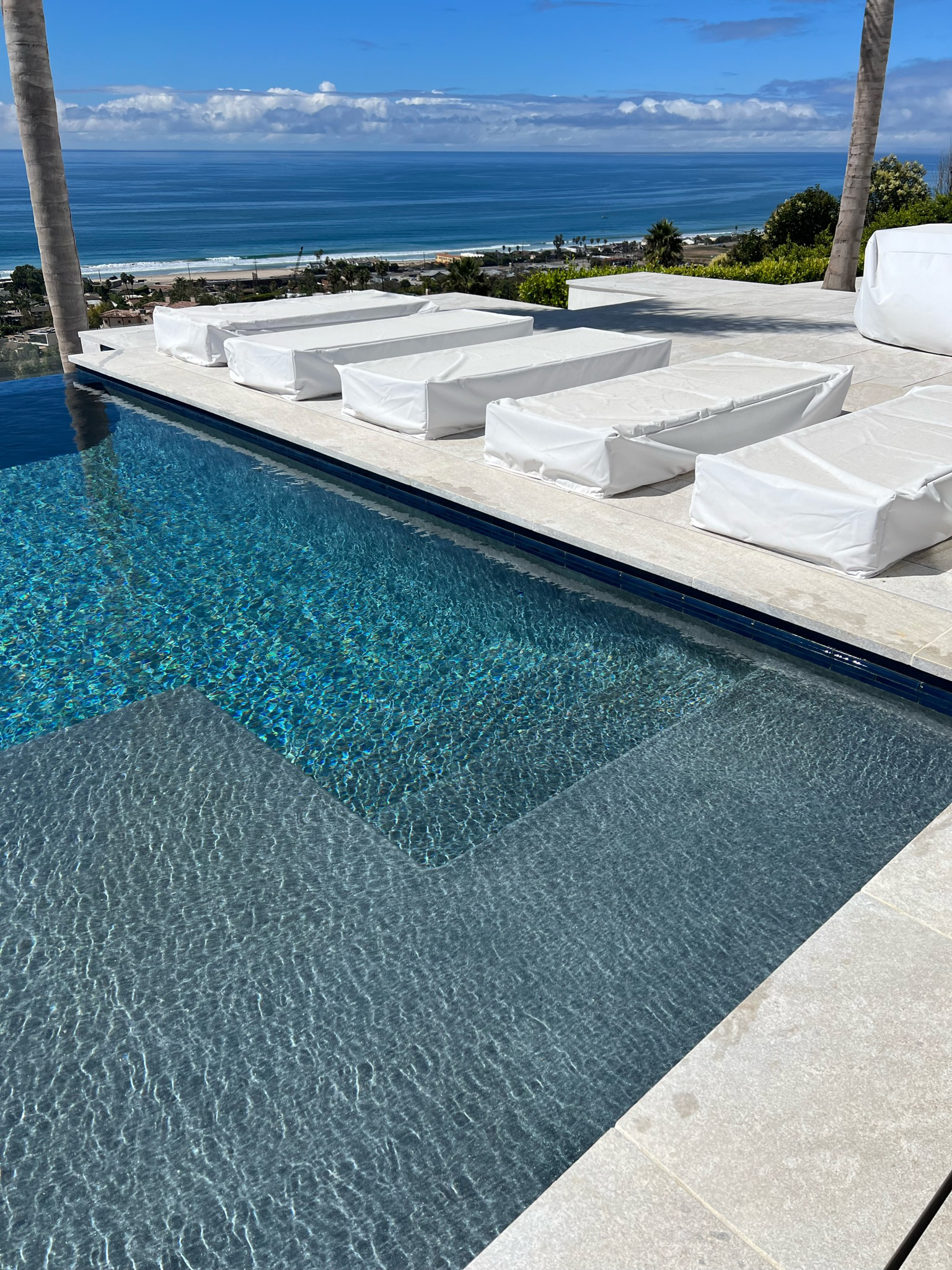Water Treatment

Water Treatment Methods
There are many different water treatment methods available, each with its own advantages and disadvantages. Some of the most common methods include:
- Chlorinated pools: Chlorine is the most common water treatment method for pools. It is effective at killing bacteria and algae, and it is relatively inexpensive. However, chlorine can be harsh on skin and hair, and it can also produce harmful byproducts.
- Salt water (chlorine generated) pools: Salt water pools use a cell to generate chlorine. As water passes through the cell, electrolysis is used to convert the salt into chlorine. This type of sanitation system is less harsh on skin and hair than regular chlorinated pools however it still produces chlorine that can be harmful. Salt water pools can be very tough and damaging on your equipment, your pool cover, your tile line and your health.
- Copper/silver ionization: Uses copper and silver ions to kill bacteria and algae. This type of pool is non-corrosive and it does not produce any harmful byproducts. Copper/Silver ionization pools require attention to detail from a knowledgeable service technician.
- Ultra Violet (UV): UV treatment uses ultraviolet light to kill bacteria and algae. This type of pool is non-corrosive and it does not produce any harmful byproducts.
- Ozone: Ozone is a powerful oxidizer that can kill bacteria and algae. This type of pool is non-corrosive and it does not produce any harmful byproducts. However, ozone treatment pools can be more expensive to install and maintain than chlorinated pools.
- Hydrogen peroxide: Hydrogen peroxide is a mild oxidizer that can kill bacteria and algae. This type of pool is less harsh on skin and hair than chlorine, and it produces fewer harmful byproducts. However, hydrogen peroxide pools can be more expensive to install and maintain than chlorinated pools.
- Bromide: Bromide is a halogen that can be used as a disinfectant in pools. It is effective at killing bacteria and algae, and it is less irritating to skin and hair than chlorine. However, bromide pools can be more expensive to install and maintain than chlorinated pools.
- Enzymes: Enzymes are proteins that can break down organic matter in pools. This can help to keep the pool clean and clear, and it can also help to reduce the need for chlorine. However, enzyme treatments can be more expensive than chlorine, and they may not be effective in all cases.
Choosing the Right Water Treatment Method
The best water treatment method for you will depend on your individual needs and preferences. If you are looking for an affordable and effective method, chlorine is a good option. If you are looking for a more gentle method that is less harsh on skin and hair, salt water pools or copper/silver ionization pools may be a better choice. If you are looking for a method that produces no harmful byproducts, UV treatment, ozone treatment, or hydrogen peroxide pools may be a good option. If you are looking for a method that is effective at breaking down organic matter, enzyme treatments may be a good option.
Contact Us Today
To learn more about water treatment methods and to choose the right method for your needs, please contact us today. We would be happy to answer any questions you have and to help you find the best solution for your pool.